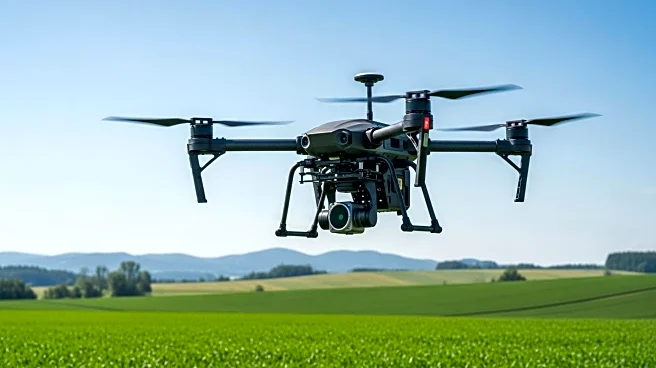What's Happening?
Ohio State University is enhancing its precision agriculture education programs to meet the increasing demand for skilled professionals in the field. John Fulton, a professor in the food, agriculture, and biological engineering department, discussed the development of five comprehensive courses covering precision and digital agriculture. These courses aim to provide students with a solid foundation in technology, data science, and field applications. The university also encourages internships to give students practical experience. The International Society of Precision Ag is supporting these efforts by creating a database of educational resources for institutions looking to develop precision ag courses.
Why It's Important?
The expansion of precision agriculture education is vital for preparing the next generation of professionals to tackle challenges in modern farming. As technology continues to evolve, the agricultural industry requires individuals who are adept at using digital tools and data analytics to improve efficiency and productivity. This educational focus supports the industry's growth and adaptation to new technologies, ensuring that students are equipped with the skills needed to succeed in various roles. The initiative also highlights the importance of collaboration between educational institutions and industry organizations in fostering innovation and workforce development.
What's Next?
Ohio State University plans to continue expanding its precision agriculture curriculum, potentially introducing new courses and workshops to keep pace with technological advancements. The university may also increase partnerships with industry leaders to provide students with more internship opportunities and real-world experience. As the demand for precision ag professionals grows, other universities might follow suit, developing similar programs to address workforce needs. The International Society of Precision Ag will likely continue to play a key role in facilitating educational resource sharing and collaboration among institutions.
Beyond the Headlines
The focus on precision agriculture education underscores the broader trend of integrating technology into traditional industries. This shift has ethical implications, such as ensuring equitable access to education and technology for all students, regardless of background. The initiative also raises questions about the environmental impact of precision agriculture, as data-driven farming practices can lead to more sustainable resource management. Long-term, the emphasis on digital agriculture could transform the industry, leading to more efficient and environmentally friendly farming practices.










